Kubernetes CKAD Certification Course
Part Time | 4 weeks
- 5.0 - Google Review

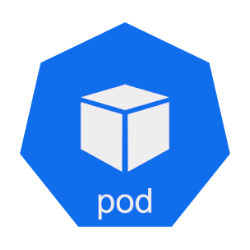
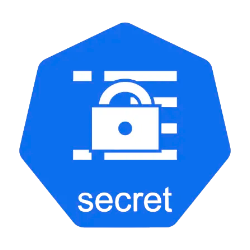
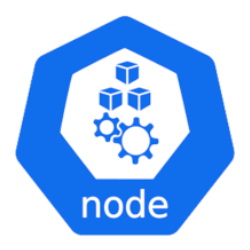
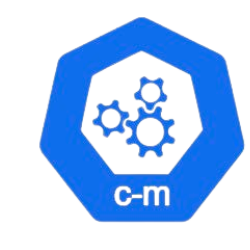
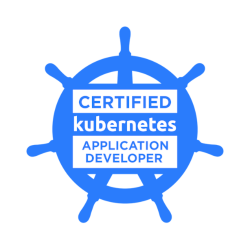
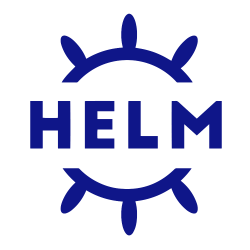
Join our Kubernetes CKAD Certification Course and explore the realm of container orchestration with Kubernetes.

Part Time | 4 weeks







Join our Kubernetes CKAD Certification Course and explore the realm of container orchestration with Kubernetes.

Kubernetes has become a ubiquitous presence in the tech industry, steadily gaining popularity each day. Given the demand for efficient resource utilization and seamless application deployment across various cloud providers in enterprise applications, Kubernetes stands out as the go-to solution for maximizing benefits with minimal effort. Through orchestrating microservices with manageable containers, Kubernetes provides control over scaling, resource allocation, networking, and more.
In our Kubernetes CKAD Certification Course, you will explore the fundamentals of Kubernetes and understand why it has become the preferred choice for modern enterprise applications.
Kubernetes stands as the foremost solution for container orchestration.
Kubernetes is set to play a pivotal role in the cloud landscape.
Secure your place at the forefront of the future. embrace the cloud revolution.
Schedule : Part-time
Duration : 4 Weeks
Course Structure: Hands-on, Labs and Exercises, Troubleshooting, Exam Tips and Practice
Level :Beginner
Prerequisites
TBD

Design and Build Applications:
Application Deployment:
Application Observability and Maintenance:
Application Environment, Configuration, and Security:
Services and Networking:
The CKAD certification, or Certified Kubernetes Application Developer, validates an engineer’s ability to design, construct, configure, and expose cloud-native applications for Kubernetes. Acquiring the CKAD certificate can enhance your chances of securing a new position and facilitate entry into the DevOps field.
Proficiency in Kubernetes is highly sought after for contemporary operational positions such as DevOps and Site Reliability Engineering (SRE).
The abbreviation K8s for Kubernetes originated by counting the letters between the “K” and “s” in the word.
The course is structured with live in-class sessions conducted via Zoom.
In Clarusway, we provide students with a comprehensive learning experience. Our exclusive LMS (Learning Management System) is an all-in-one online platform designed for user-friendliness. The LMS allows students to initiate learning before class with valuable pre-class activities and reinforces learning after class with post-class assignments. Additionally, students have the flexibility to watch recordings of in-class sessions at their convenience, serving as a valuable reinforcement tool.
Access to LMS content extends up to three months after the course concludes. Instructors can be reached for questions during in-class sessions or through our dedicated Slack channel. Furthermore, a designated Q&A channel is available for students to submit questions 24/7, with responses provided as soon as possible.
We offer diverse payment options, including:
This program readies you to assume the role of a Kubernetes professional responsible for orchestrating multiple containers within a DevOps team. With this preparation, you can pursue positions in companies utilizing a DevOps model or planning its adoption, utilizing Kubernetes either on-premises or in various cloud systems. Additionally, opportunities may arise in AWS, where you could join an AWS engineering team focused on constructing essential services to assist cloud customers in efficiently running and managing Kubernetes at scale on AWS.
To enroll, it is necessary to have familiarity with containerization technologies like Docker and a foundational understanding of Linux and the YAML data serialization language.
To ensure uninterrupted operation, the management of containers running applications in a production environment is essential. When one container fails, another must be initiated. Kubernetes provides a platform for efficiently managing resilient distributed systems. It oversees the scaling and recovery of your applications, performing tasks such as service discovery and load balancing, storage orchestration, automated rollouts and rollbacks, automatic bin packing, self-healing, and secret and configuration management.
Docker and Kubernetes are not the same; Docker constitutes a collection of software development tools designed for creating, distributing, and running individual containers, while Kubernetes serves as a method for scaling containerized systems.
Learning Kubernetes can be easy if you begin with the fundamentals and progress step-by-step, utilizing our Learning Management System (LMS). While the numerous components and new architecture might initially present challenges, we provide guidance and coaching to ease the learning process for our students.
Kubernetes is developed using the Go programming language, which is created by Google.
Obtaining Kubernetes from the official website does not incur any charges. However, costs typically arise when deploying Kubernetes to a system/cluster or utilizing cloud platforms like AWS, Google Cloud Platform, and Azure. Some cloud platforms offer credits for a certain period from the creation of an account.
Kubernetes falls under the category of a framework designed for the resilient operation of distributed systems.
You can utilize the Kubernetes command-line tool (kubectl) with any version of kube-apiserver that is at least one minor version older than the current one. All versions are accessible on the official site. For instance, if kube-apiserver is at version 1.23, kubectl is supported at versions 1.24, 1.23, and 1.22.
Kubernetes, a container orchestrator, operates on platforms like Docker, which serves as a container platform.
| Tools | |
| kubectl | Command-line tool |
| kind | Used to run Kubernetes on your local computer (Requires installed Docker) |
| minikube | Used to run Kubernetes locally |
| kubeadm | Used to create and manage Kubernetes clusters |
| crictl | CLI for inspecting and debugging CRI-compatible container runtimes. |
| Dashboard | Kubernetes’ web-based user interface. |
| Helm | Used to manage pre-configured Kubernetes resource packages. |
| Kompose | A tool to assist Docker Compose users in transitioning to Kubernetes. |
| Kui | A graphical user interface (GUI) tool that accepts standard kubectl command line requests and responds with graphics. |
Amazon Elastic Container Service (ECS) | A service provided by Amazon Web Services (AWS) |
RedHat OpenShift | An open-source container application platform (PaaS). |
Docker Swarm | A container orchestration system composed of managers and workers. |
Nomad | Used for deploying and managing containerized or traditional application workloads. |
AWS Fargate | While the standard version of Kubernetes does not support serverless computing, Amazon Fargate does. |
Kubernetes CKAD, or Certified Kubernetes Application Developer, is an exam that verifies users’ ability to create and expose cloud-native applications for Kubernetes. A CKAD is proficient in describing app resources and using fundamental primitives to develop, monitor, and troubleshoot scalable applications and tools in Kubernetes.
The distinction between CKA and CKAD lies in their focus and skills:
The relative difficulty between CKAD and CKA depends on your background and preparation. CKAD focuses exclusively on basic concepts related to building, monitoring, and troubleshooting scalable applications and tools, making it a suitable initial choice between the two options.

